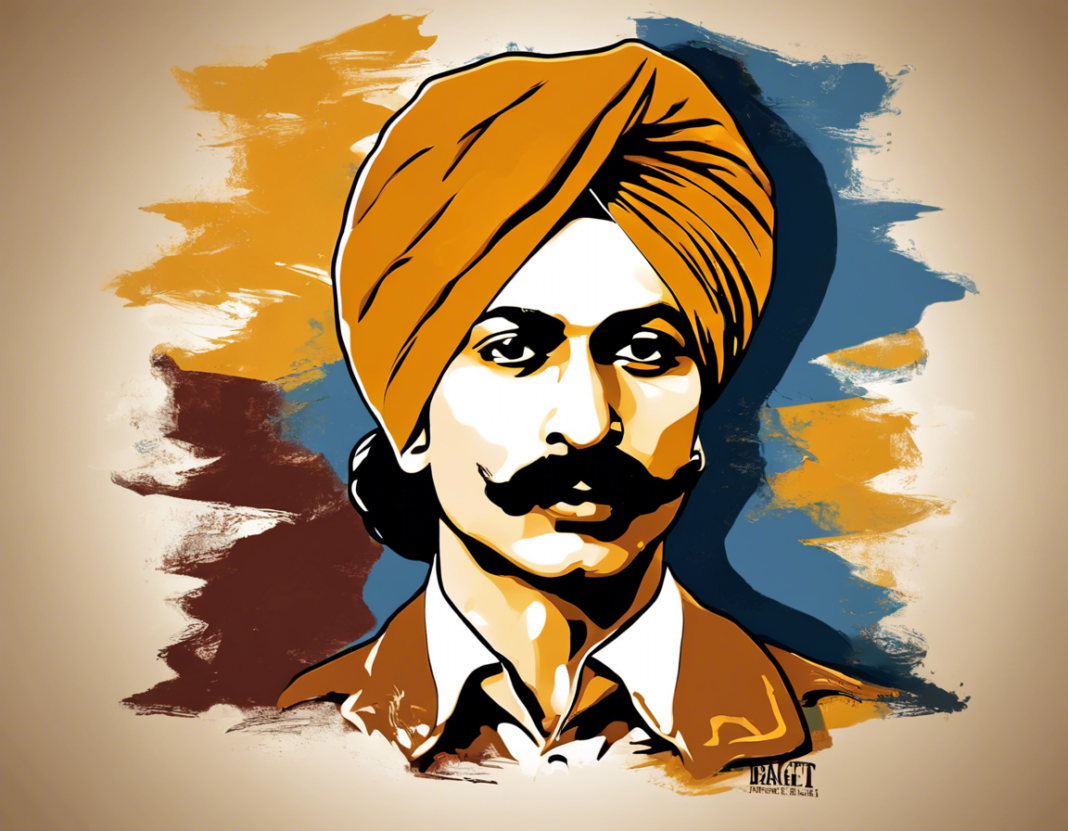Introduction
Bhagat Singh, a prominent figure in the Indian independence movement, continues to inspire generations with his revolutionary ideas and heroic acts. Born on September 28, 1907, in Banga, Punjab, Bhagat Singh played a pivotal role in challenging British colonial rule in India through his fearless actions and powerful slogans. His legacy as a revolutionary martyr and thinker remains etched in the collective memory of the Indian nation.
Early Life and Radicalization
Bhagat Singh was deeply influenced by the Ghadar Party and the Hindustan Socialist Republican Association (HSRA), which played a significant role in shaping his revolutionary ideals. The Jallianwala Bagh massacre of 1919 and the execution of Lala Lajpat Rai in 1928 were critical events that fueled his anti-colonial sentiments and propelled him towards activism.
Revolutionary Activities and Slogans
Bhagat Singh, along with his comrades, engaged in various acts of resistance against British colonial rule. One of the most iconic slogans associated with Bhagat Singh is “Inquilab Zindabad,” which translates to “Long Live the Revolution.” This slogan encapsulated his unwavering commitment to overthrowing colonial oppression and establishing a free India.
Another powerful slogan attributed to Bhagat Singh is “Sarfaroshi ki tamanna, ab hamare dil mein hai” (“The desire for sacrifice is now in our hearts”). This slogan embodied his readiness to make the ultimate sacrifice for the cause of independence.
Bhagat Singh’s daring actions, such as the Lahore Conspiracy and the assembly bombing in 1929, brought the struggle for independence to the forefront of public consciousness and shook the foundations of British rule in India.
Impact and Legacy
Despite being executed by the British authorities on March 23, 1931, Bhagat Singh’s legacy continues to resonate with people seeking justice, equality, and freedom. His unwavering courage, intellectual acumen, and dedication to the cause of independence have immortalized him as a symbol of resistance against oppression.
Bhagat Singh’s ideas on socialism, secularism, and the rights of the oppressed continue to inspire activists, intellectuals, and youth across India and beyond. His writings, such as “Why I am an Atheist” and “Jail Notebook,” reflect his deep commitment to social justice and his vision for a more equitable society.
FAQs
1. What were Bhagat Singh’s main principles and beliefs?
Bhagat Singh believed in the principles of socialism, secularism, and the rights of the oppressed. He advocated for a society based on equality, justice, and freedom for all.
2. How did Bhagat Singh’s actions impact the Indian independence movement?
Bhagat Singh’s acts of resistance and his revolutionary slogans galvanized the Indian masses and inspired a new wave of anti-colonial sentiment. His sacrifice energized the freedom struggle and brought international attention to the cause of Indian independence.
3. What role did Bhagat Singh play in the Hindustan Socialist Republican Association (HSRA)?
Bhagat Singh was a key member of the HSRA, a revolutionary organization dedicated to the overthrow of British colonial rule in India. He played a crucial role in planning and executing acts of resistance against the British authorities.
4. How did Bhagat Singh’s ideas on socialism influence his revolutionary activities?
Bhagat Singh’s belief in socialism fueled his commitment to fighting against social and economic inequalities perpetuated by colonial rule. He saw socialism as a means to create a more just and equitable society for all individuals.
5. What is the significance of Bhagat Singh’s “Inquilab Zindabad” slogan?
The slogan “Inquilab Zindabad” became a rallying cry for the Indian independence movement, symbolizing the call for revolution and freedom from British oppression. It continues to evoke a sense of solidarity and defiance against injustice.
6. How did Bhagat Singh’s execution impact the Indian populace?
Bhagat Singh’s execution by the British authorities sparked widespread outrage and intensified the demands for independence across India. His martyrdom transformed him into a legendary figure whose sacrifice inspired a new generation of freedom fighters.
7. What is the relevance of Bhagat Singh’s ideas in contemporary times?
Bhagat Singh’s ideas on nationalism, secularism, and social justice remain relevant in contemporary times. His legacy serves as a reminder of the ongoing struggle for equality, liberty, and dignity in society.
Conclusion
Bhagat Singh’s revolutionary slogans and fearless actions continue to inspire individuals striving for a more just and equitable world. His legacy as a martyr and thinker resonates with the enduring quest for freedom and justice, making him a symbol of courage and resistance for generations to come. As we reflect on his life and contributions, we honor the spirit of Bhagat Singh and reaffirm our commitment to building a better and more inclusive society.

